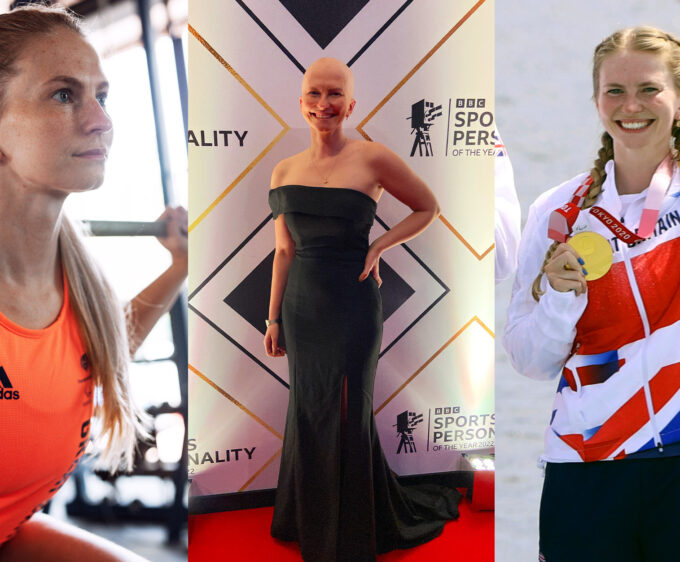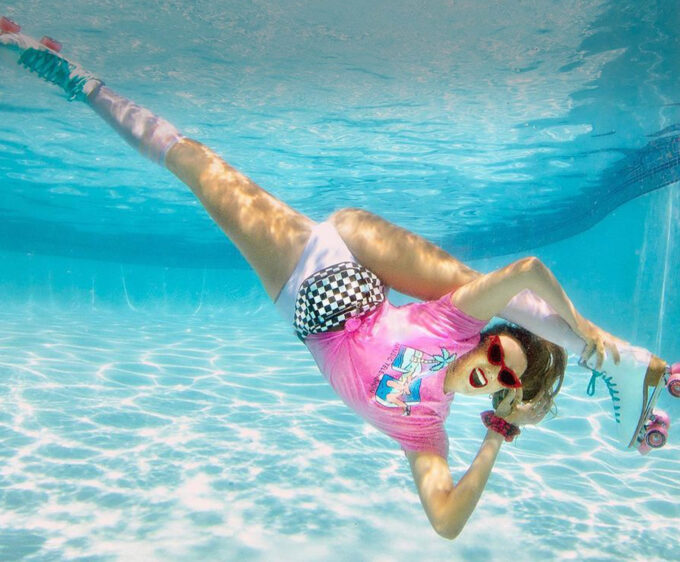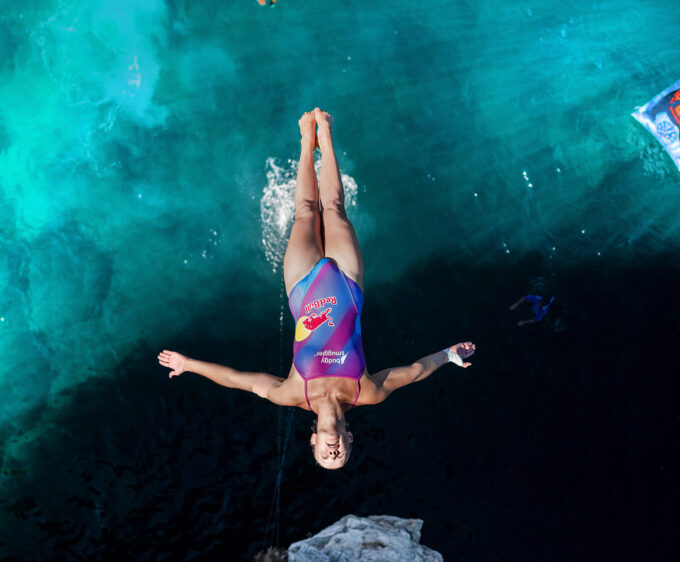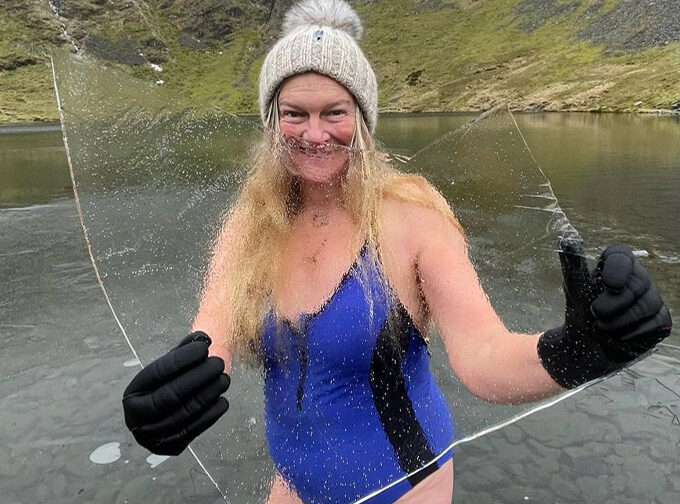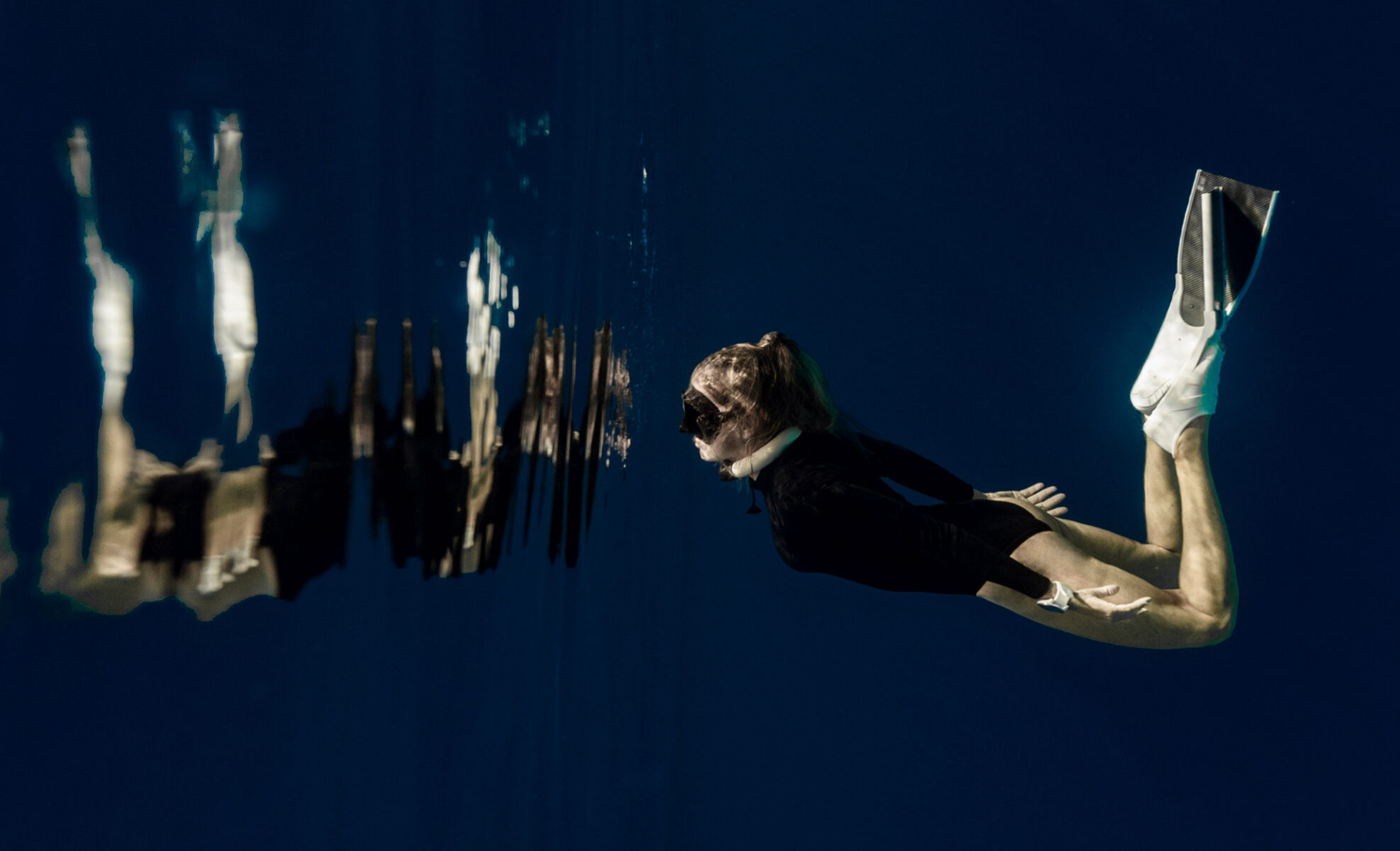
Descending Deep
Ruth Osborn swapped a career in the public sector for a life in Ibiza to follow her love of water, which led her to become one of the UK's best freedivers
By Glorious
Ruth Osborn was born in the Highlands of Scotland but as her father was in the Royal Air Force, she spent much of her childhood living in different places, which she acknowledges equipped her well for the nomadic life she leads today. After achieving a BA (Hons) in Modern History and Politics at The University of Manchester, followed by an MA (Econ) International Relations, Ruth hoped to become a diplomat – travel the world and make it a better place, but this wasn’t to be. Initially she worked in a voluntary sector organisation, helping to advise charities on accessing and managing European funds, before being seconded to the civil service.
However, it was after a yoga holiday to Ibiza that Ruth’s career path took a dramatic change in direction. She followed her childhood passion for swimming and love of the water, moved to Ibiza and set up Ibiza Swim – offering private swimming lessons in private villas. Now, aged 44, Ruth is one of the UK’s leading female freedivers, as well as a swim instructor, freedive coach and teacher of yin-yoga.
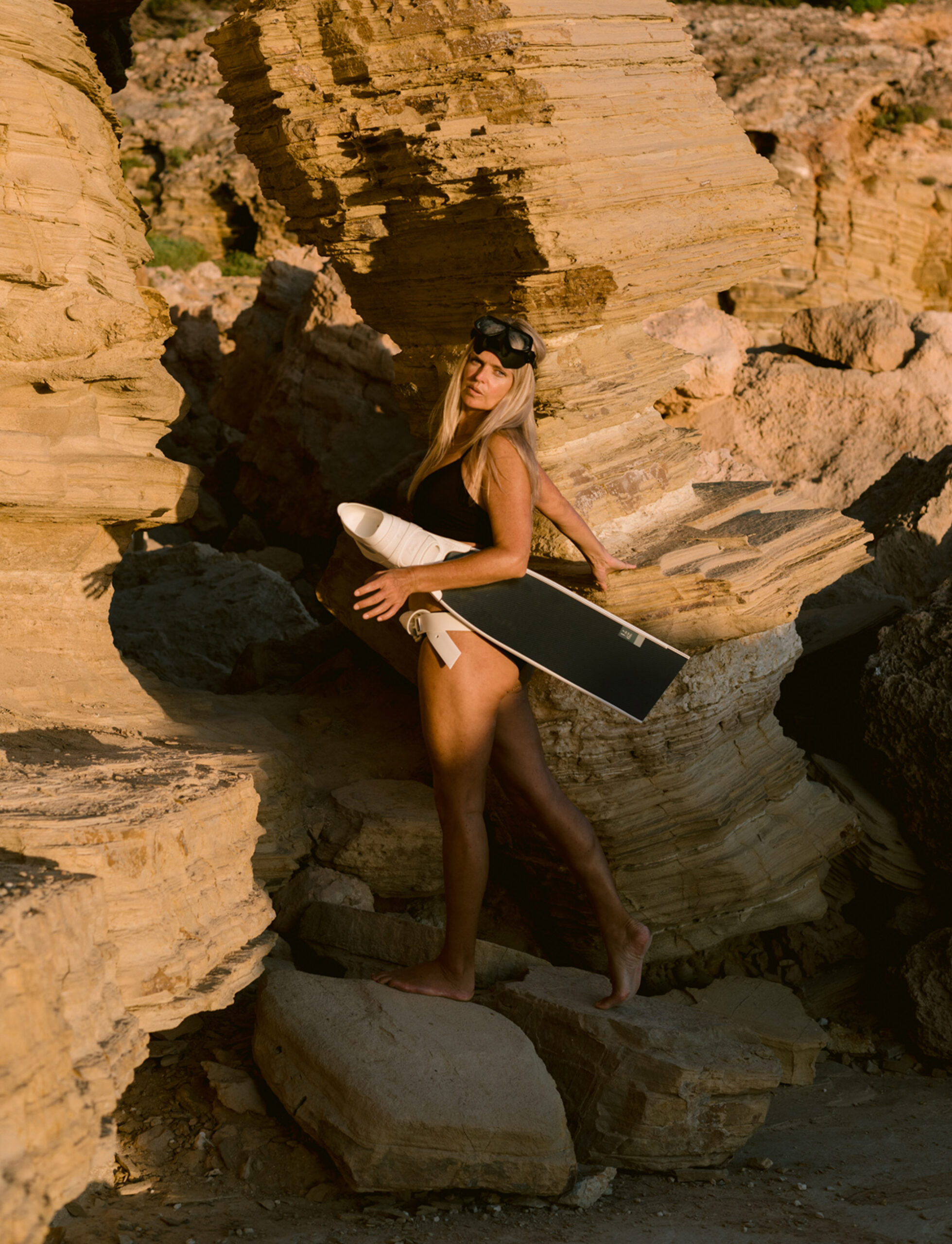
Glorious: When did your interest in swimming begin?
Ruth Osborn: I’ve always loved water and I have my mum to thank for this. She had a bad experience learning to swim (as was usual in her day) and didn’t want the same for my brother and I, so she took me to the pool as soon as she could. Then when I was aged 4, she took me to swimming lessons and as I loved it so much, by aged 8, I was in the local swimming club. Through my teens I did all sorts of water based sports – I played water polo briefly, achieved a BSAC scuba certification as soon as I was old enough and I competed in swimming and kayaking. I believe the benefits of youth sports are immense and I am so grateful for all the time and energy my parents invested in me when I was growing up. I believe this is why I’m now able to compete successfully as a freediver.
Glorious: In 2006 a yoga holiday to Ibiza changed your life, tell us about this.
Ruth Osborn: On that holiday in Ibiza I saw people making a living from doing things they loved, creating their own solo-enterprises and I was inspired to do the same, to follow my love of water and a desire to live in the sun (I have psoriasis – an auto-immune disease that affects my skin, but clears up in sunshine). At the time I was 28 and working in the Government Office for the North West in (very rainy) Manchester and thinking there has to be more to life than this (and I found out there is!). Ten months after my first trip to Ibiza, I moved there with a website and a hope that there was a demand for the service I was offering (there was!) and a desire to make this life happen. I lived in Ibiza for just over four and a half years. I then went on a surf holiday to Morocco and that totally changed my life again, but that’s another story. During that time I returned to competitive swimming, competing with (and then coaching) Ibiza Masters in the pool and I began open water swimming and competitions.
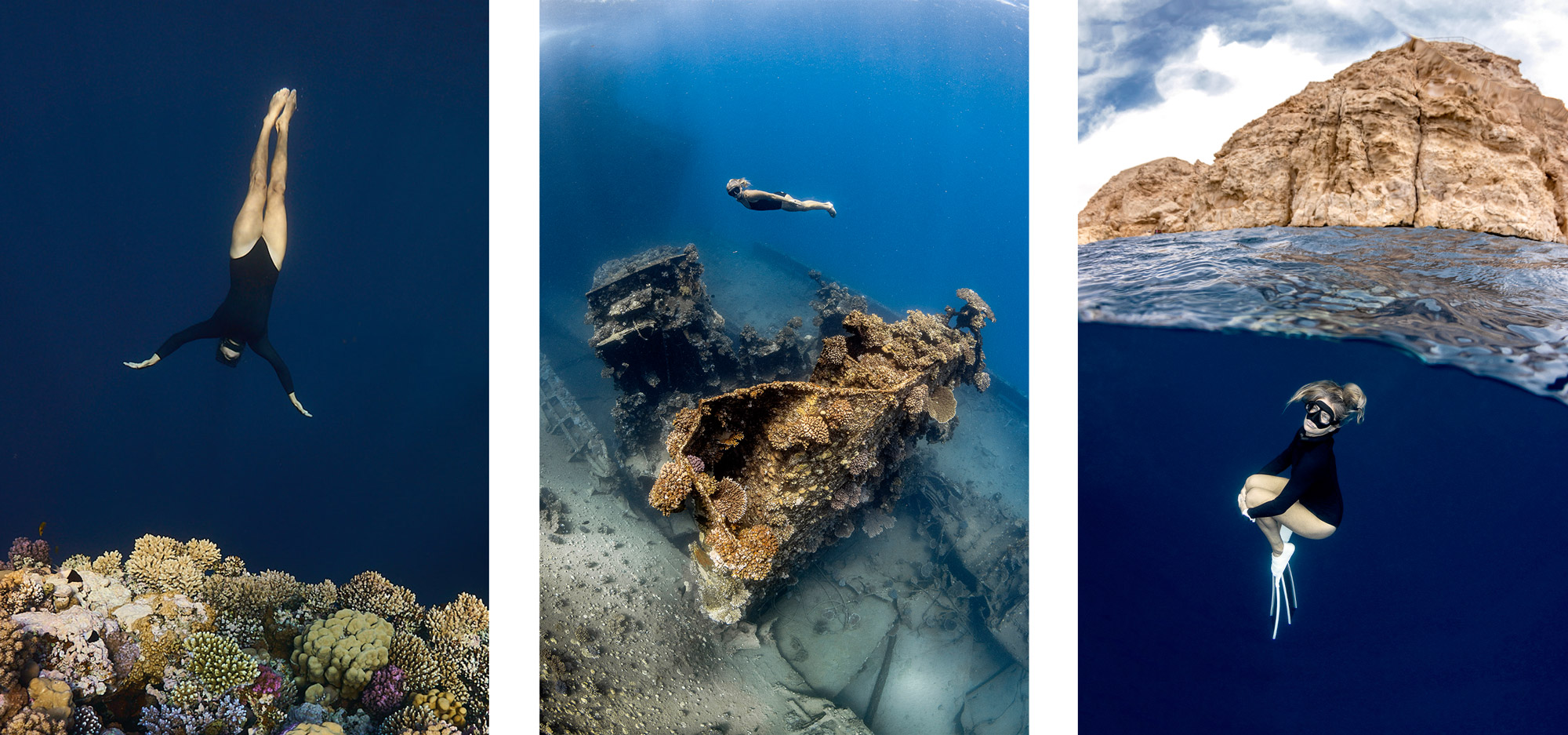
Glorious: What is your work now?
Ruth Osborn: In the summer months I’m based in Ibiza and I teach swimming privately in homes and villas and in the sea. I work with all abilities and ages – from a child’s first experience in the water to triathletes, Ironmen, to adult learners and improvers. I love having such varied work and everyone has different needs, so my work is always interesting. I also work in some of the most stunning and exclusive properties on the island and the sea is my office – it couldn’t get better!
Since last year my focus, outside of summer months, has been on me as a freedive athlete and my training, so the other things I love to work in – yoga and freediving – have taken a back seat for now. In the future I will be teaching more yoga and I will be coaching freediving. I’m really lucky that the life I have created allows me to work super hard during the summer months and then I have freedom to move around, train and compete the rest of the year (just a bit unlucky that my work season coincides with peak competition season for freediving).
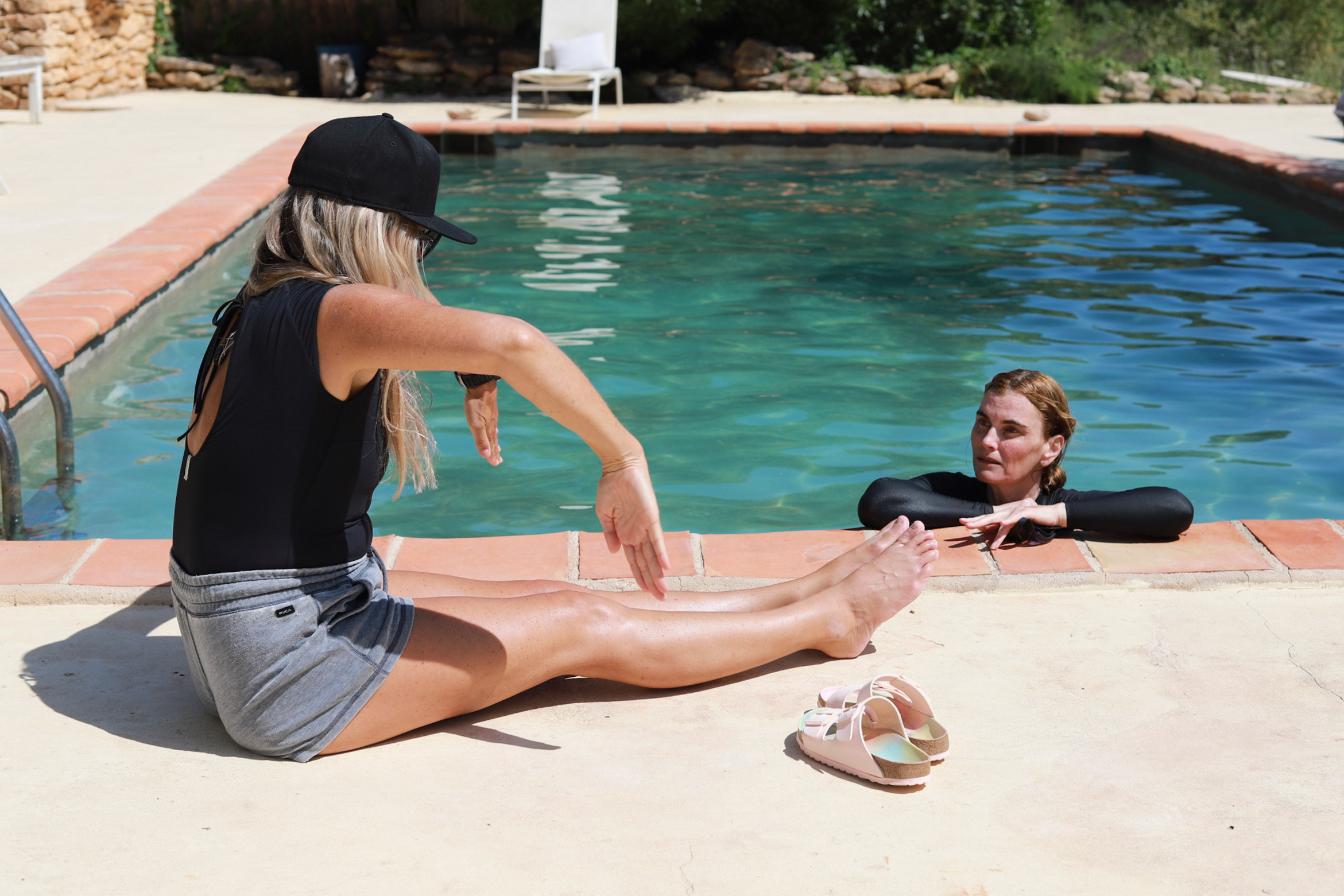
Glorious: What inspired you to freedive and what is it that you love about this sport?
Ruth Osborn: I knew about freediving when I was swimming with Ibiza Masters around 2008/09 because sometimes there would be a freediver with weights and a mono fin training in the pool, but I was so focused on being back swimming competitively that it didn’t interest me. In 2015, finally freediving called me, I wanted to feel the water, and feel myself in the water, in a different way to swimming or surfing.
In the beginning, I had no curiosity for depth, but that changed instantly when I felt freefall for the first time (as we descend we become less positively buoyant moving through neutral to negative buoyancy, and as we are negative we enter freefall where we relax and drop to depth). Ever since then I love depth, and the deeper I go the more I love it.
What I love about freediving is the mental focus it dictates, the presence, the awareness of body and mind, and the honesty of it – in how one is feeling on the day of a dive and whether that dive is possible on that day. For me, the dive is a pure meditation in motion – the deepest relaxation with the highest level of awareness and focus. I experience it like leaving this world with all its noise, and leaving the noise of my mind, and for a short time the land world goes – it’s just me, the line and the sea. For competitions and training, my focus is on me and the line – I’m not diving to see anything, I’m diving for depth. It’s very different when I’m in the water to see and experience the underwater world. I still use the same skills of breath hold and awareness and efficiency of movement in the water, but I’m there to enjoy marine life and it is magical!
Freediving has joined the dots of everything I’ve done previously in my life – swimming, yoga, meditation, nutrition, fitness and strength, travel (and the adaptability of moving around for freedive training and competitions) and my love of the water. It encompasses them all.
pressure
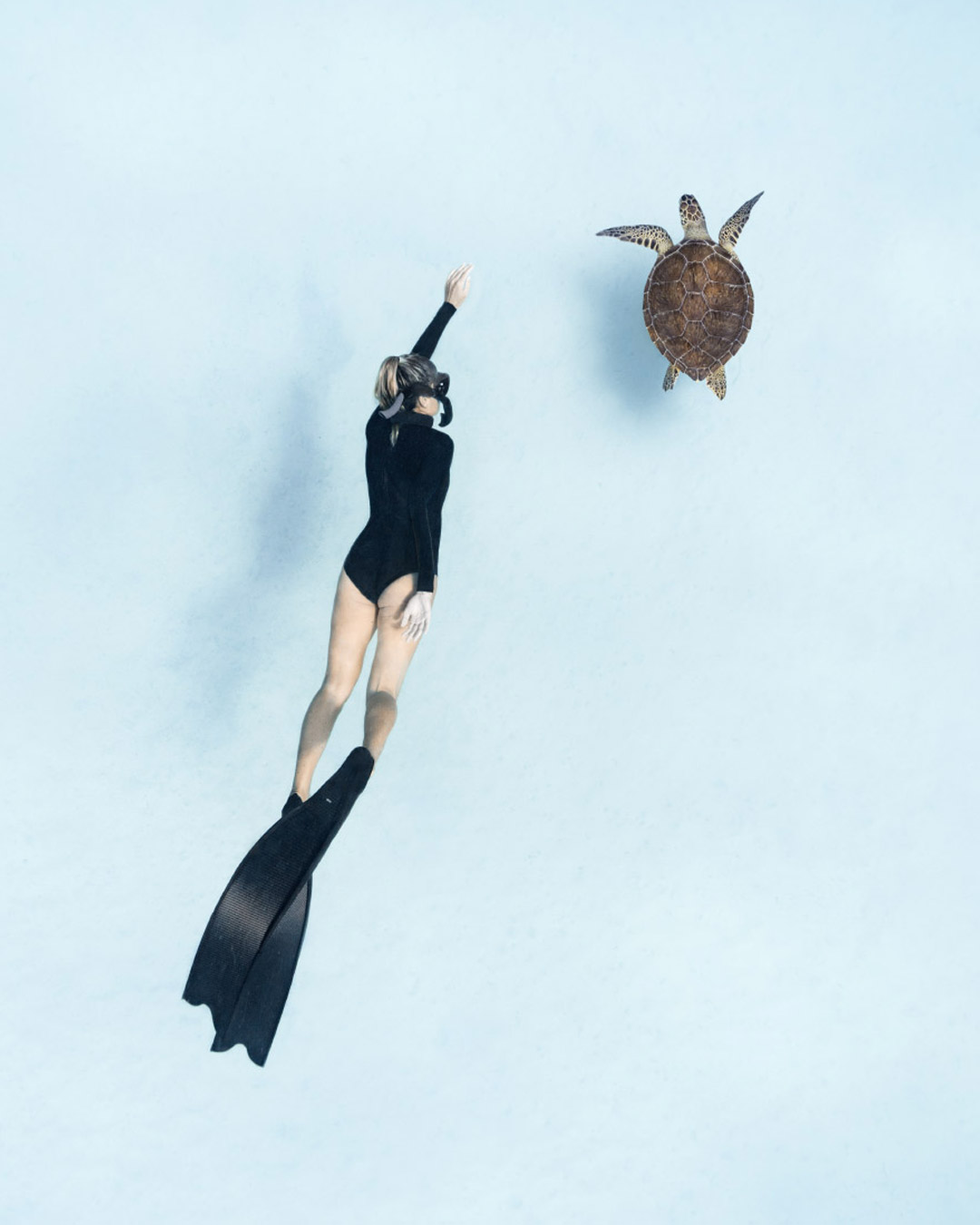
Glorious: How much is plastic pollution and the effects of global warming affecting your sport?
Ruth Osborn: It is devastating to see the amount of plastics in the sea. I was lucky to be based in the Red Sea during the Covid pandemic (and near where COP27 will be held next month) and there is so much pollution. Despite efforts by local communities, we are always taking plastic out, but it’s never-ending and heartbreaking. Imagine you’re on an aquarium-like reef so colourful, so full of life and there are plastic bags wrapped around the most beautiful corals and plastic debris floating among the fish – it’s devastating and to think that they are in grave danger is awful. With global warming, the reefs and all the life that they support will die, and it’s only a case of sea temperatures rising by 1 degree. For many freedivers, we feel more connected to the planet, as we see first-hand the impacts of how we live on land. One day we may just be swimming in plastic and the coral reefs will be no longer, unless we take drastic action now and make radical lifestyle changes.
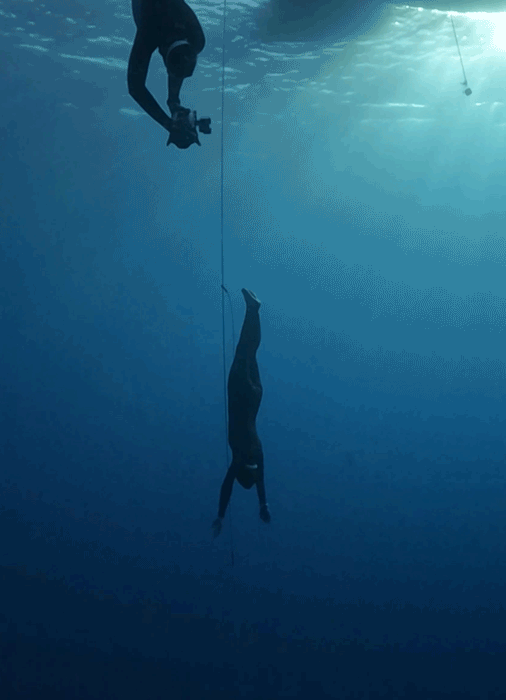
Glorious: Tell us about the freediving community.
Ruth Osborn: I recently competed in the CMAS World Championships – we were 140 athletes from 39 countries united by our love of the sport. Freediving brings together some really interesting, aware, connected, kind and beautiful people. Whilst we compete under the flags of our countries, my feeling is that this is not as important as the community of interest that the passion for freediving has created.
Glorious: How difficult is freediving, how long does it take to master the technique and have the mental strength to compete at elite level?
Ruth Osborn: Freediving is not difficult. There’s various techniques that need to be mastered in freediving, and as we progress we’re just learning different techniques or mastering different skills for different challenges. Everyone learns at a different pace and has different challenges depending on their background, skill set and personality. I recommend good teaching, patience in allowing skills to develop in the time they need, focus on skills rather than depth, time or distance, and enjoying the learning process.
My own freediving is still a work in progress – some skills I’ve mastered but there’s always going to be ones I’m working on. For example, on mental strength, I observed that my dives at the World Championships were not as relaxed or focused as the week before in pre-competition. As for competing now at elite level, when I see my name on a training board or on a start list in the company of some of the best freedivers in the world, I wonder how my name got there. It’s an incredible feeling, I believe deeply in surrounding myself with greatness and I really appreciate the encouragement and support from the elite freedivers.
Many skills we use as freedivers are beneficial to everyone, for example correct diaphragmatic breathing, being able to deeply relax, being able to focus, awareness of how one is feeling in body and mind and listening to that. I believe freediving is a sport of our time – the antidote to modern life. It is the reconnection to self, to focus and to the planet.
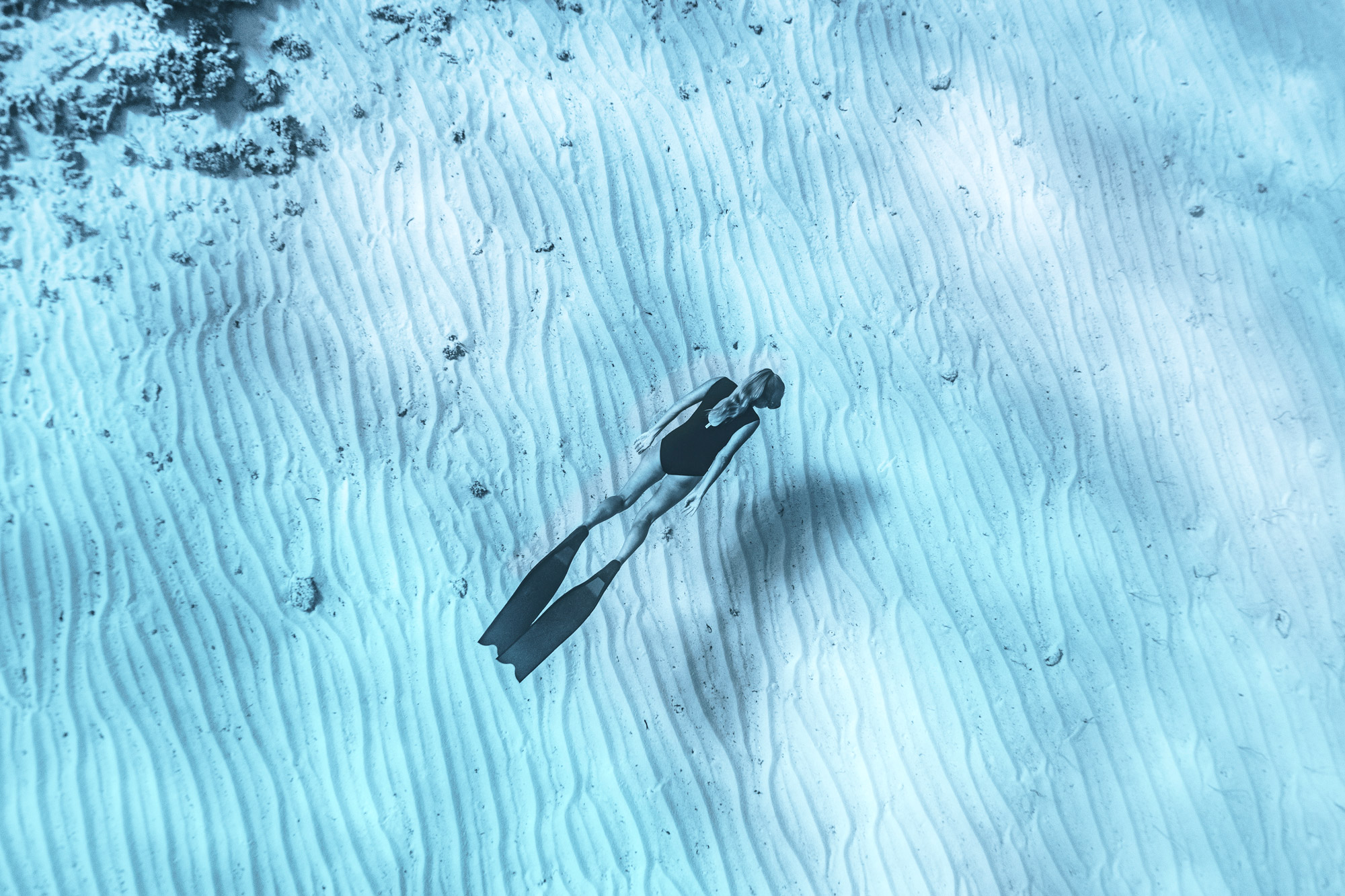
Focused
Glorious: Have you experienced or witnessed any scary moments?
Ruth Osborn: I haven’t, but friends have. There’s always a risk and we have to be careful to take the necessary precautions, follow safety procedures and safe diving practices to make sure we stay safe and represent our sport as a safe sport.
Glorious: Can you become a professional freediver and make a living?
Ruth Osborn: No. At the moment it is still very difficult to make ends meet and make a living as a professional freediver. Even the World Record holding athletes with the financial support of their country and private sponsors are, I think, just managing.
In the UK there is no financial support for freediving, we are mostly all self-funded, with some equipment sponsorships. Maybe one day financial backing will come into the sport as it has done with other sports and things will change. For now, freediving is a sport we do for love, not for money, and maybe that’s what makes it so special.
Glorious: When teaching women to freedive, in your experience, what do they find most challenging?
Ruth Osborn: Self-confidence and self-belief (which also applies to me). Women are SO much more capable than they believe themselves to be.
Glorious: You are also a yoga teacher, so what is the synergy between freediving and yoga?
Ruth Osborn: Both yoga and freediving require focus and awareness (of breath, mind and body) and the skills I learnt on the yoga mat have really helped in my freediving. There is also the physical flexibility that yoga practice gives and flexibility is essential for freediving. Pranayama practices (breathing exercises) I feel are integral to freediving in terms of awareness of breathing muscles, building awareness of breathing and also understanding how using breath can calm and relax the body and mind. When I’m in a usual life rhythm (and this does get disrupted), my day begins with a short meditation and Pranayama practice.
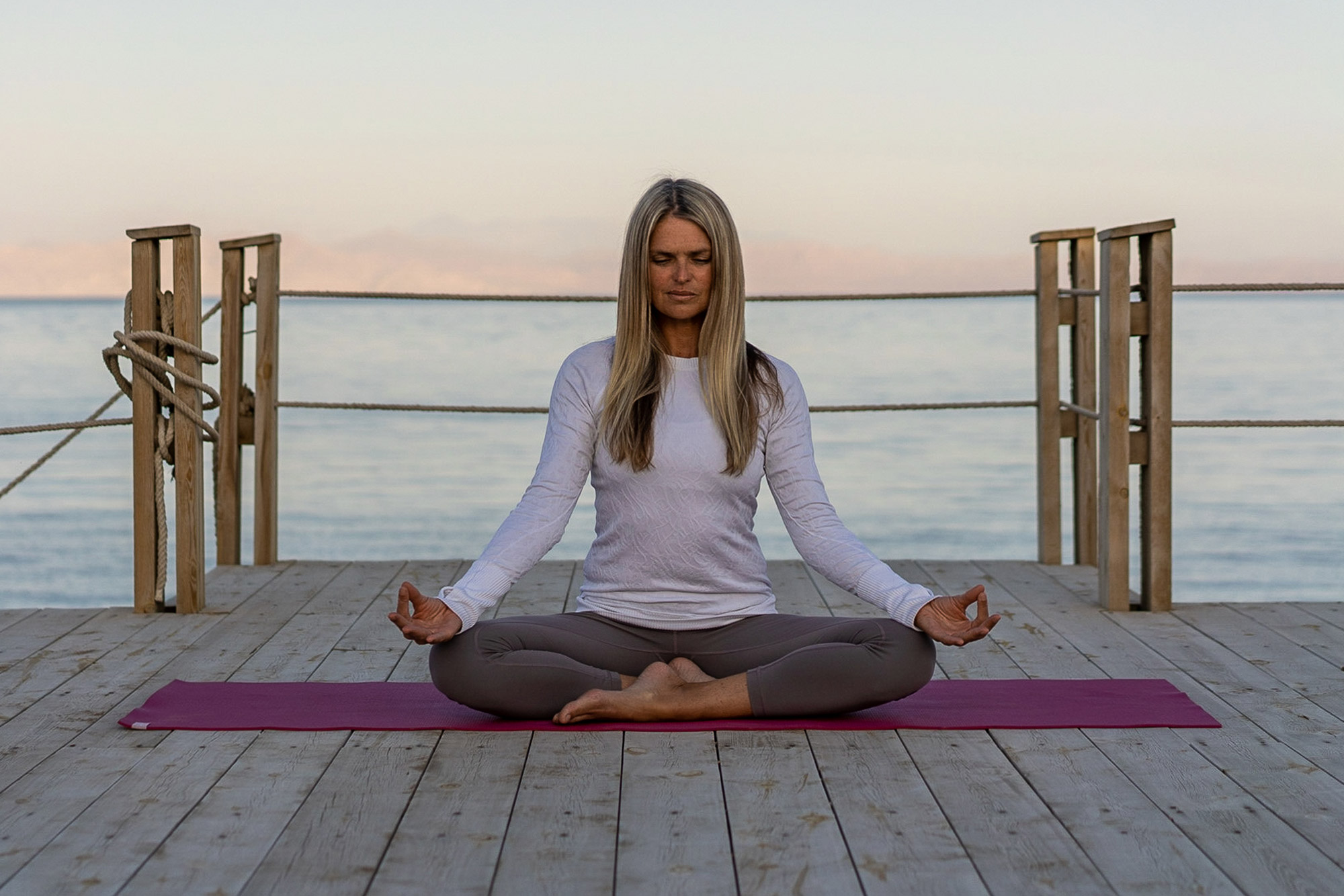
Glorious: Where are the best places in the world that you have dived and why?
Ruth Osborn: Ibiza – it’s great in the summer with up to 45m depth, easy-ish access from shore and some beautiful fun dive spots. Bali – I really love the village of Ahmed in the north, it is where I did my AIDA 4 advanced freediver course. It’s a chilled place for fun diving on the wreck at Tulumben. Cabo San Lucas – Baja California, Mexico – the first time I dived here I heard whale song and was so lucky to dive with migrating humpback whales. It’s also possible to surf along the coast from here, so I dived in the morning and surfed in the afternoon – life doesn’t get more perfect! Dahab Blue Hole, Egypt – perfect conditions for training and competition and I love seeing the corals and the fish as I swim out. Sharm El Sheik, Egypt and Kas in Turkey for the excellent training and competition set-up.
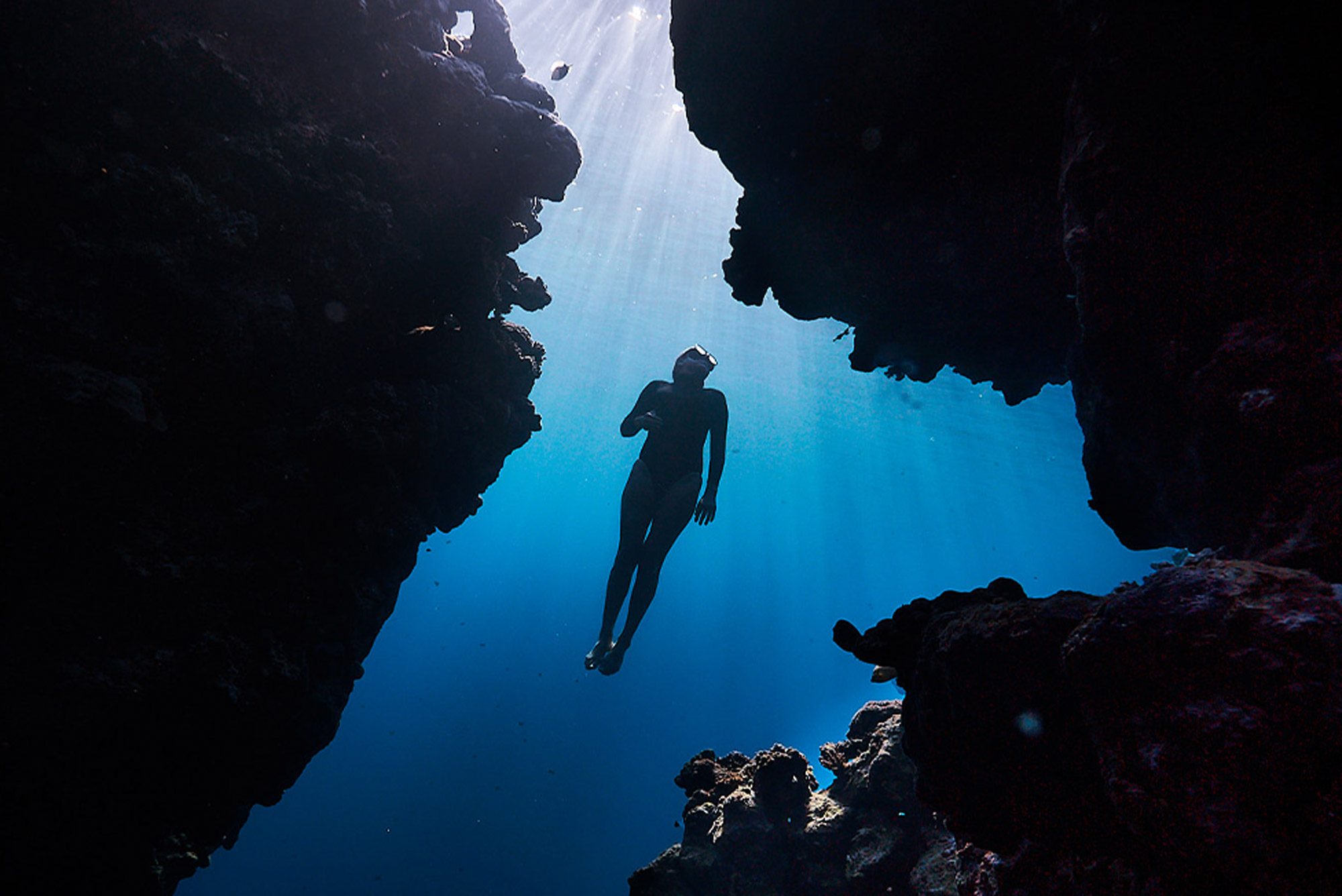
connection
Glorious: When you’re not freediving or practising yoga, what other interests do you have?
Ruth Osborn: I love spending time in the water and I wish I had more time to do this purely for pleasure rather than training, competing or working. I also enjoy surfing, but since 2020 my focus has been on competing in freediving. I’m trying to figure out how I can live my life in ways that are less damaging to the environment and I am interested in developing myself to have more compassion, be kinder, and grow to be a better person to myself and others.
Glorious: If you weren’t a British freediver, what sport would you like to excel in?
Ruth Osborn: OMG surfing!
Glorious: If you could teach two inspirational women to freedive, who would they be and why?
Ruth Osborn: Mother Teresa – her kindness and her commitment to help alleviate suffering – I would have loved to spend time with her. The Kardashians (more influential rather than inspiring) in the hope they might feel some connection to the planet and use their immense influence for something good.
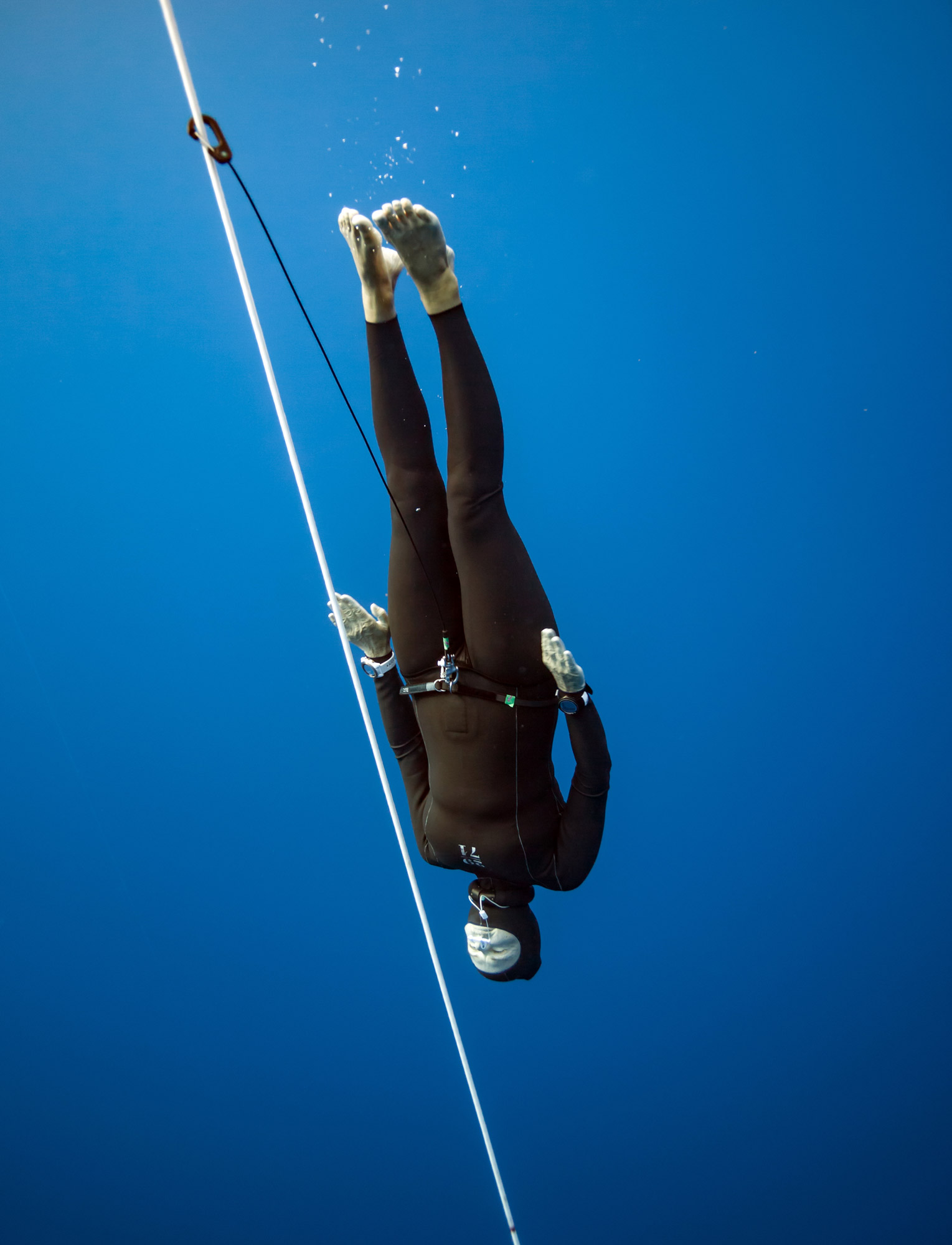
Glorious: What’s next for you?
Ruth Osborn: I’m just nearing the end of a pool training camp in Croatia and from here I go to Egypt for 9 weeks of depth training in preparation for another competition in May. In my last competition my results ranked me UK number 2 in no-fins and free immersion disciplines, so this time I’m hoping to take the national records and rank number 1. Regardless of the outcome of this competition I should still make selection for the UK team for AIDA World Championships, which will be held in September in Limassol, Cyprus. The World Championships will be live-streamed – it’s one of the few freediving competitions that has Diveye – an underwater drone that follows us for the whole dive.
Outside of competition I’m honoured to have been invited by Ocean Culture Life to become an ambassador. OCL is a community of ocean storytellers and guardians who give a voice to the ocean, telling our stories to raise awareness, celebrate and protect the planets most prominent life support system. I have also been invited to join an epic sounding fun dive expedition to Turkey early April to dive on some old war wrecks as part of a Government sponsored project. It’s not ideal timing in terms of the competition but it’s something I really can’t turn down – I LOVE diving on wrecks! Then over the summer, in between Egypt and Cyprus, I’ll be in Ibiza teaching swimming and training freediving.
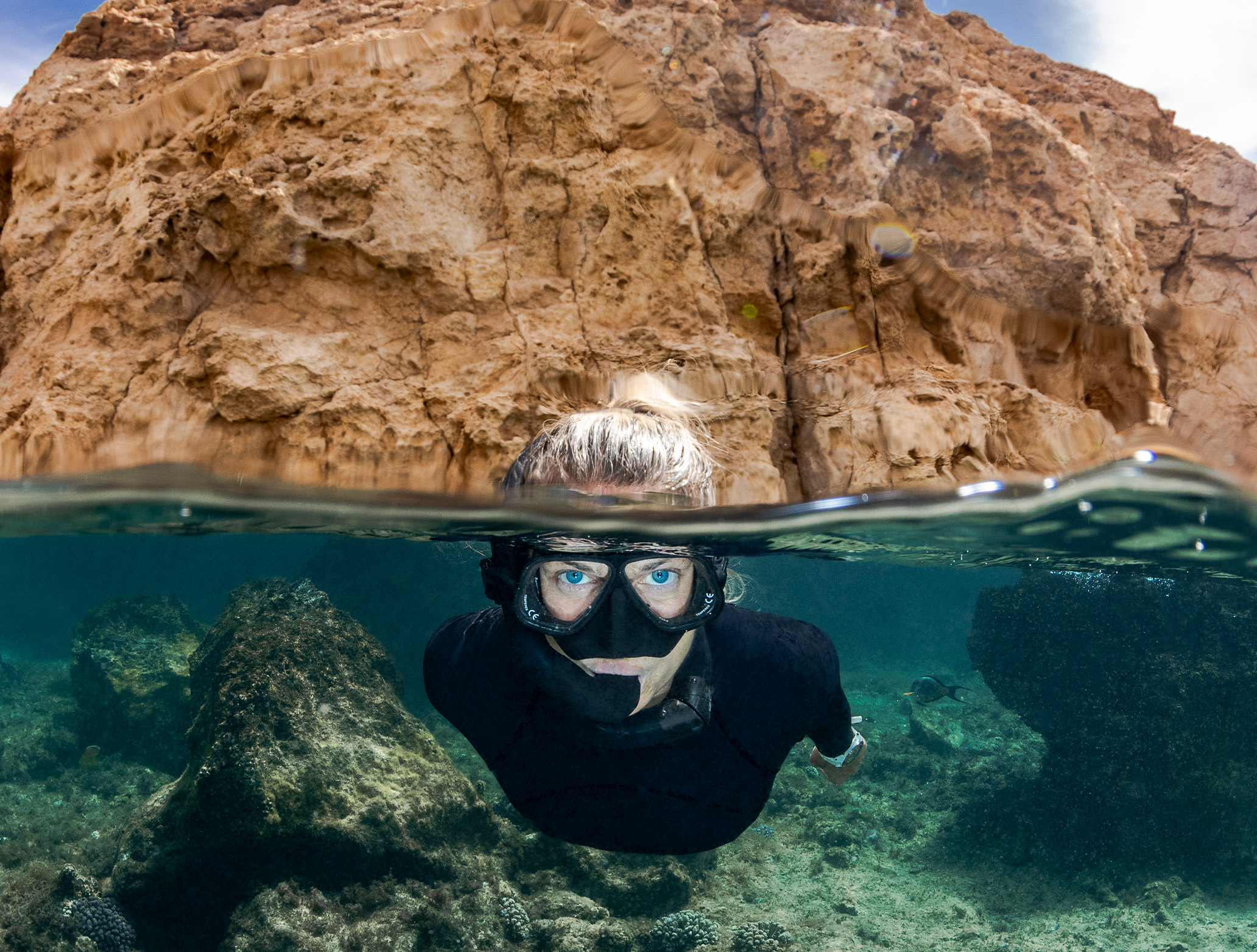
Editorial Design by this is root
Title Image by Jacob Lee
